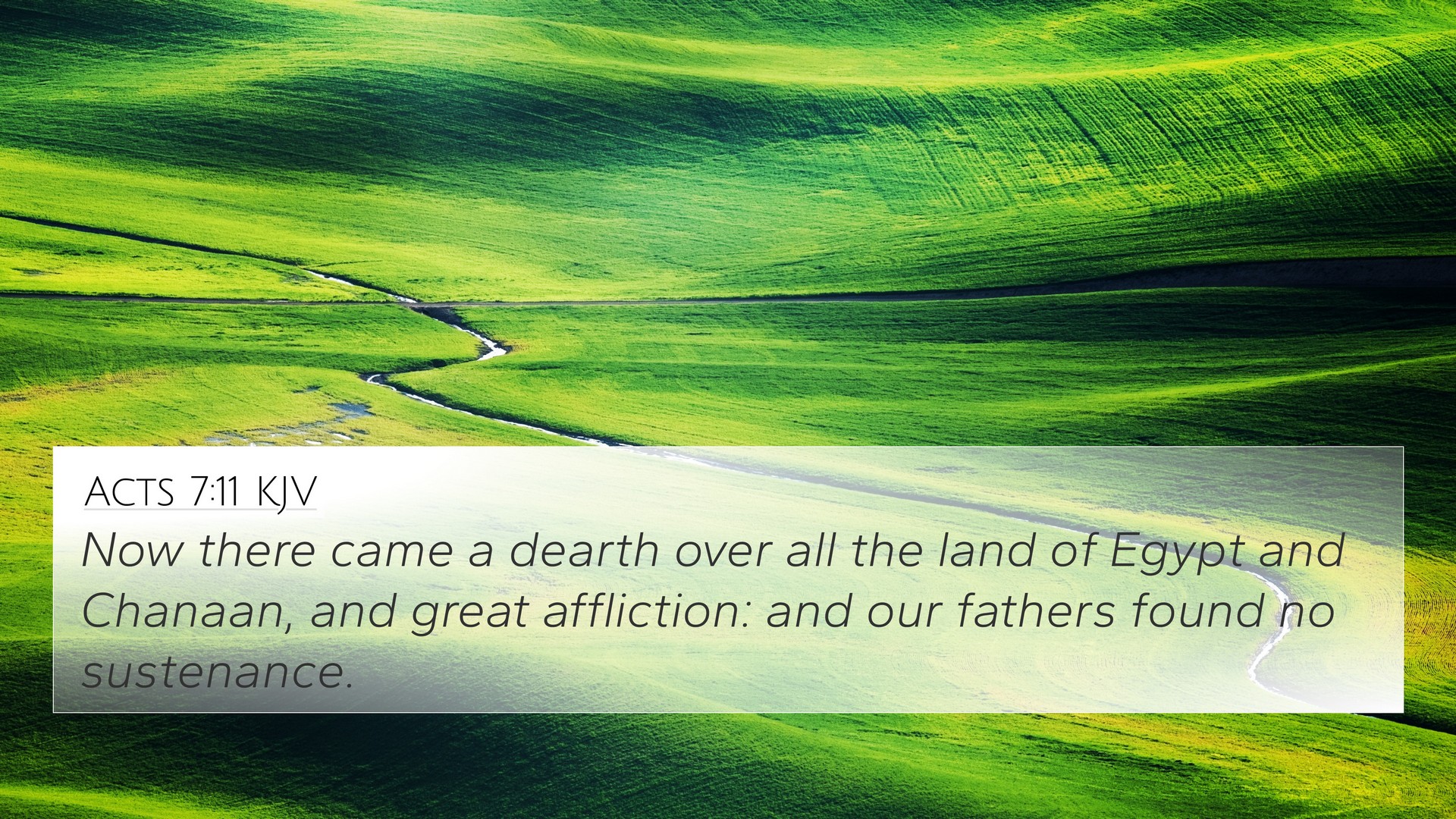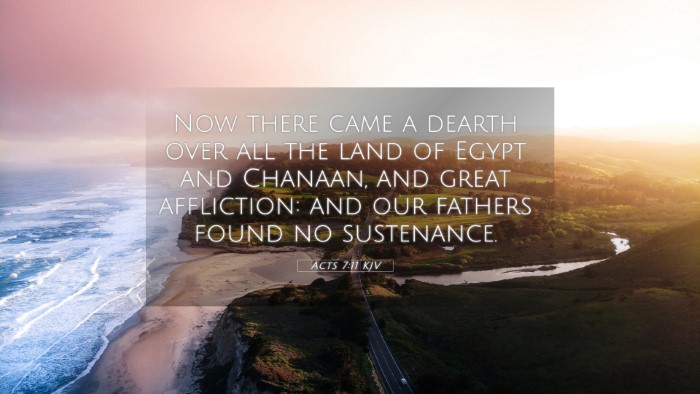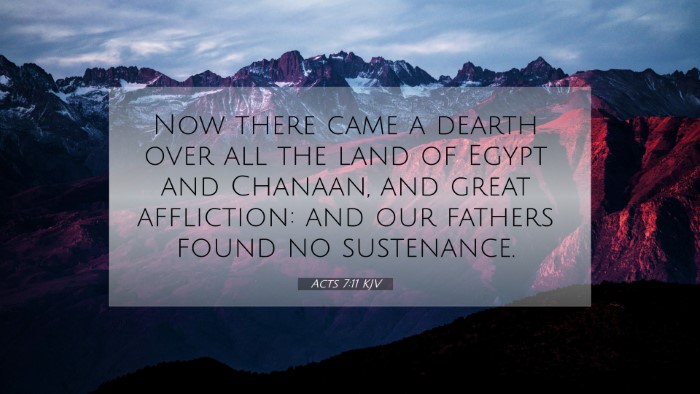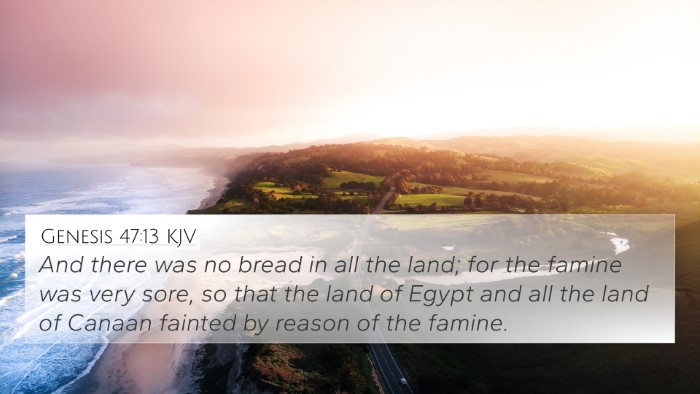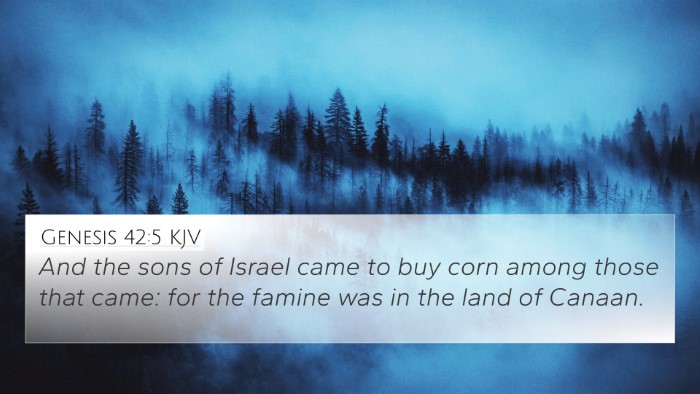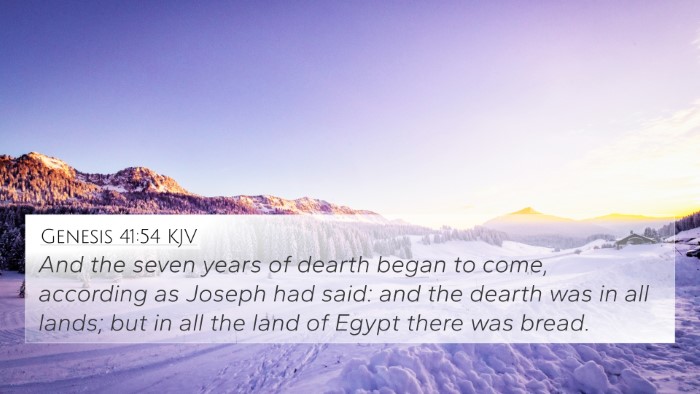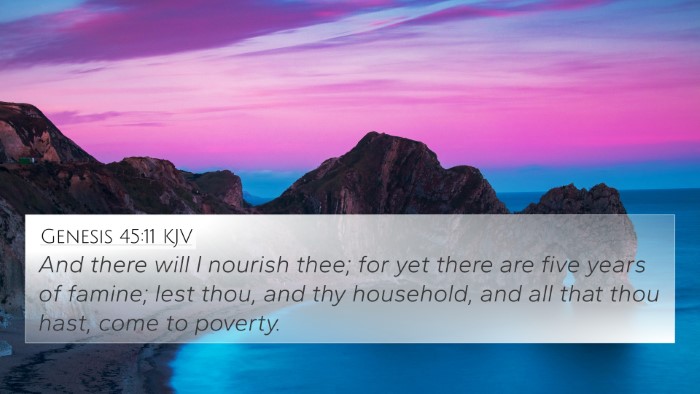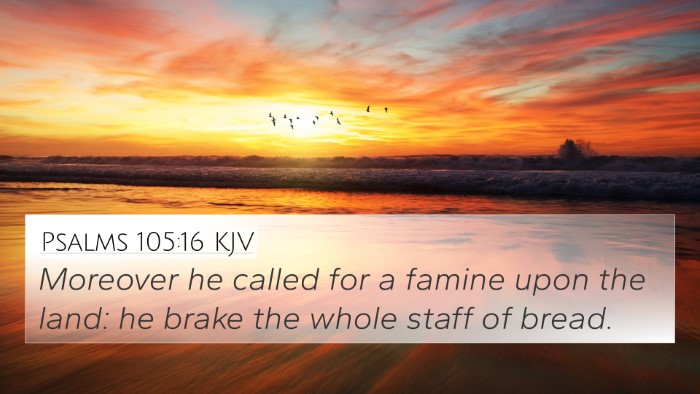Understanding Acts 7:11
Acts 7:11 states:
"Now there came a famine over all the land of Egypt and Canaan, and great affliction; and our fathers found no sustenance."
Summarized Meaning and Commentary Insights
This verse reflects a critical moment in the narrative of the early Church, specifically in the context of Stephen's speech before the Sanhedrin, where he recounts the history of Israel and God’s persistent faithfulness despite Israel's disobedience.
Contextual Insights
- Historical Context: According to Matthew Henry, this verse highlights a pivotal period in the history of God's people, wherein a severe famine forced them to seek sustenance from Egypt. The mention of the famine refers back to Genesis 41:54, which prophesied the times of hardship that would befall the lands of Canaan and Egypt.
- Theological Significance: Albert Barnes emphasizes how this famine serves as a symbolic reminder of reliance on God amidst affliction. It illustrates the theme of divine providence that runs through Biblical narratives, indicating that God was orchestrating events long before the actual events comprised in the narrative.
- Human Condition: Adam Clarke notes that this verse channels a deep human experience of desperation and need. It serves to connect us with the plight of the fathers who, during times of want, found themselves in distress and looking for sustenance, thus foreshadowing our own spiritual hunger without God.
Thematic Connections
Acts 7:11 resonates with various themes found throughout Scripture:
- Divine Providence: This verse calls attention to God's foresight and provision, seen in how He provided Joseph for sustenance during the famine.
- Exodus Motif: It connects to the subsequent events leading to the Israelites' journey from famine in Canaan to Egypt, echoing the Exodus theme where divine deliverance is central.
Cross References
To fully understand Acts 7:11, it is insightful to consider other Scripture passages that are thematically related:
- Genesis 41:30-31 – Discusses the seven years of famine that Joseph anticipates.
- Genesis 42:1-3 – Jacob sending his sons to Egypt to buy grain.
- Genesis 47:13-14 – Describes Joseph managing the resources during the famine.
- Psalm 105:16-22 – Reflects on God sending a famine that led Israel to be sustained through Joseph.
- Matthew 15:32 – Jesus expressing concern for the crowd, mirroring the need for sustenance.
- Luke 4:25-26 – Jesus referring back to Elijah and the famine as a sign of God's miraculous provision.
- John 6:35 – Jesus as the Bread of Life, alluding to physical and spiritual sustenance needs.
- Romans 8:28 – God's ability to work through all circumstances for the good of His people.
- Hebrews 11:22 – Joseph's faith regarding how God would provide for His people.
- Revelation 7:16 – An everlasting promise that there will be no hunger in the eternal state.
Further Exploration: Bible Verse Cross-References
Engaging with Acts 7:11 through cross-referencing can enrich understanding:
- Use a Bible concordance to locate additional verses that discuss famine, sustenance, and reliance on God.
- Explore a Bible cross-reference guide for related passages that draw parallels between the Old Testament narratives and New Testament revelations.
- Consider tools for Bible cross-referencing that help identify links between the historical accounts in Genesis and the teachings of Jesus Christ in the Gospels.
How to Use Bible Cross-References
Interconnecting themes found in Acts 7:11 and related verses can assist in developing a comprehensive understanding of:
- Identifying connections between Old and New Testament: Noting the recurring themes of need and providence in both Testaments.
- Circuiting through the Gospels: How the accounts of the Gospel writers refer back to the narratives of the Old Testament.
- Cross-referencing themes like famine: A study approach to explore how Scriptures treat physical and spiritual hunger.
Conclusion
Acts 7:11 provides a powerful depiction of the trials faced by our spiritual ancestors and serves as a reminder of God's faithfulness in desperate times. By engaging with this verse through cross-referencing and deeper Bible study methods, believers can unveil layers of meaning that enrich their faith and understanding.
